 November 02, 2023
November 02, 2023
The H10 compact HEPA filter ordered by the customers have been shipped.
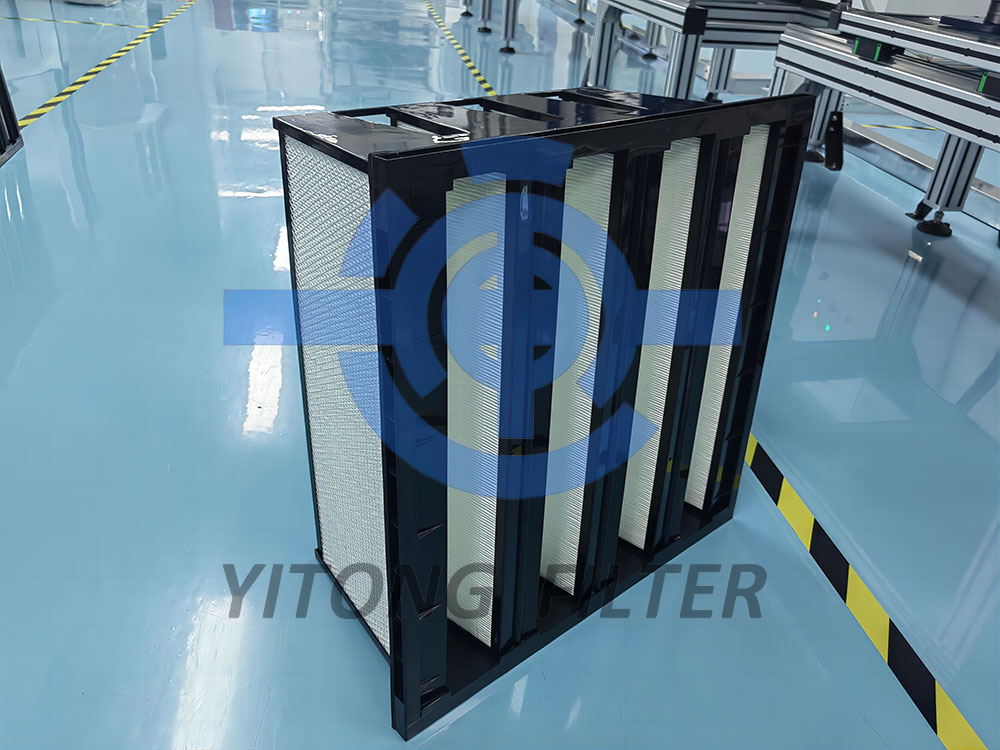
H10 Compact HEPA Filter Product Detail:
Type: V-bank (4V)
Frame material: ABS + PVC
Filter media: Micro glass fibre paper
Slot gasket: Polyurethane
Filter class: H10 (EN1822)
Dim.: 592mmX592mmX292mm-4V
H10 Compact HEPA Filter Technical Datasheet:
| Type | Size(mm)(HxWxD) | Test Air flow(m³/h) | Initial pressure(≤Pa) | Media area(m²) | Filter grade(EN1822) |
| V-Bank | 592*592*292 | 3400 | 141 | 20 | H10 |
H10 Compact HEPA Filter Test Report
| Initial pressure Test Report | ||||
| Air flow(m³/h) | 1700 | 2550 | 3400 | 4250 |
| Initial pressure(≤Pa) | 62 | 99 | 140 | 187 |
| Filteration area(m²) | 20㎡ | |||


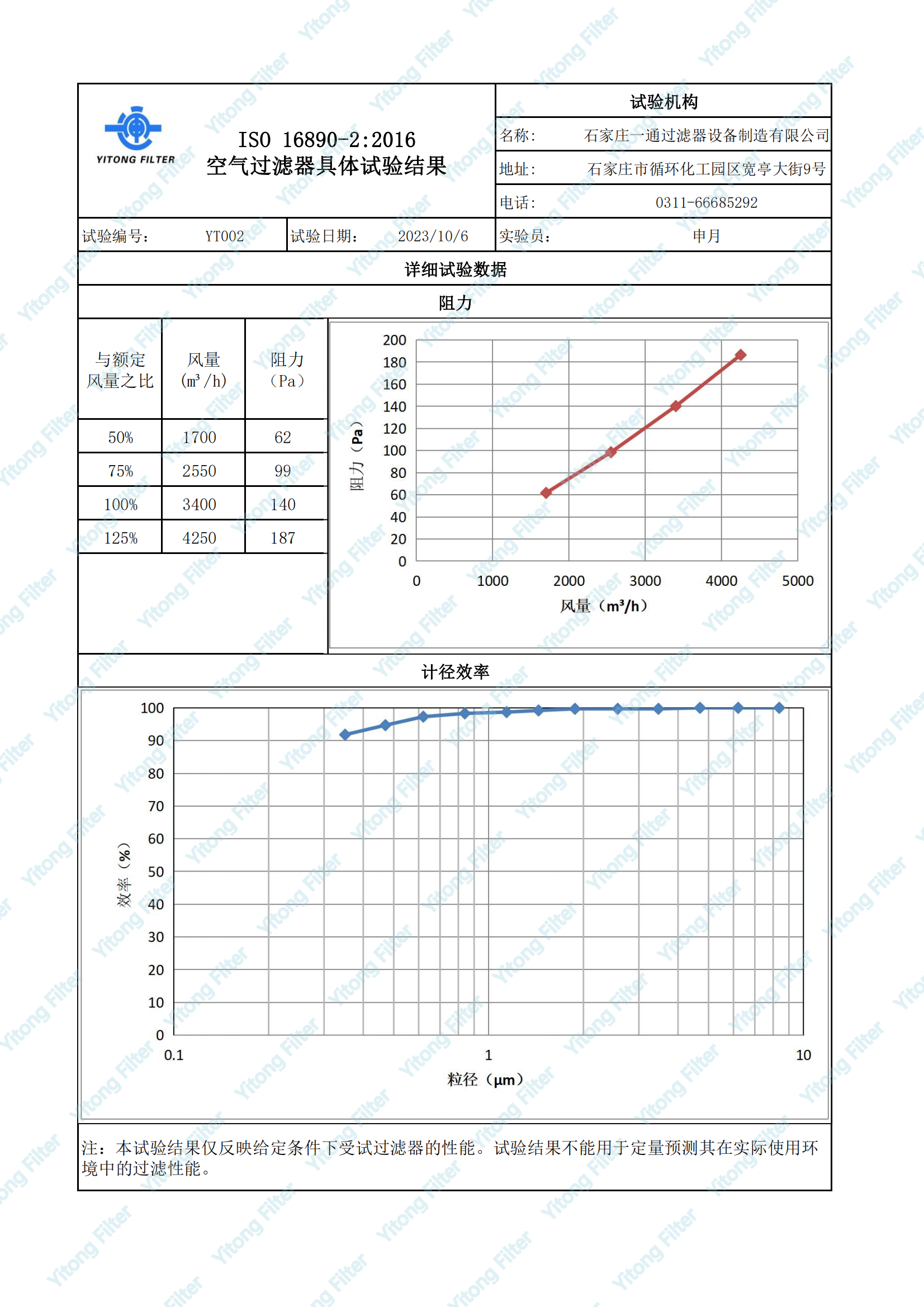
Compact Filter Buying Guide
A compact filter, often used in HVAC (Heating, Ventilation, and Air Conditioning) systems, is a vital component for maintaining indoor air quality and the efficient operation of your heating and cooling equipment. When buying a compact filter, consider the following factors to ensure you choose the right one for your needs:
1. Filter Type:
- Fiberglass Filters: These are affordable but have a lower filtration efficiency and may need frequent replacement.
- Pleated Filters: They offer better filtration and typically last longer than fiberglass filters.
- HEPA Filters: High-efficiency particulate Air (HEPA) filters provide the best filtration, capturing particles as small as 0.3 microns. They are ideal for those with allergies or asthma.
2. MERV Rating:
- The Minimum Efficiency Reporting Value (MERV) rates a filter's ability to capture particles. Higher MERV ratings indicate better filtration. For residential use, filters with a MERV rating of 8 to 13 are suitable. However, very high MERV ratings can restrict airflow and strain your HVAC system.
3. Filter Size:
- Ensure the filter size matches your HVAC system's specifications. The most common sizes for residential systems are 1-inch, 2-inch, and 4-inch filters. Measure your existing filter or check your HVAC manual for the correct size.
4. Filter Replacement Schedule:
- Consider how often you are willing to replace the filter. Higher MERV-rated filters may need more frequent replacement due to increased particle capture.
5. Allergies and Indoor Air Quality:
- If you or your family members suffer from allergies or respiratory issues, invest in a higher MERV-rated filter or even a HEPA filter for better air quality.
6. Compatibility:
- Check if your HVAC system is compatible with a specific filter type or size. Some systems may require specialized filters, so consult your HVAC technician if you're unsure.
7. Budget:
- Set a budget for filter replacement. While more efficient filters may cost more upfront, they can improve air quality and potentially reduce long-term HVAC maintenance costs.
8. Environmental Impact:
- Consider environmentally friendly options like washable or reusable filters, which can reduce waste and save money over time.
9. Brand and Quality:
- Choose reputable filter brands known for their quality and reliability. Read reviews and seek recommendations from HVAC professionals or trusted sources.
10. Installation and Maintenance:
- Follow the manufacturer's instructions for installation and maintenance. Regularly check and replace filters as needed to ensure optimal performance and air quality.
11. Filter Housing or Frame:
- Some filters come with a built-in housing or frame. If your HVAC system doesn't have one, you might need to purchase a separate filter housing or frame to hold the filter securely.
12. Custom Requirements:
- If you have specific needs, such as a custom-sized filter or a filter with specialized features (e.g., odor removal), consult with a professional to find the right solution.
Remember that the right compact filter can help maintain a healthy indoor environment, improve HVAC system efficiency, and save on long-term maintenance costs. Consult with an HVAC technician for personalized advice on the best filter for your specific system and needs.
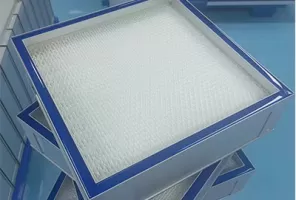 Aug. 27, 2024
Air Filtration in Cleanrooms
Aug. 27, 2024
Air Filtration in Cleanrooms
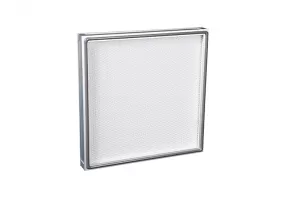 Jun. 06, 2023
Introduction to Laminar Flow HEPA Filter
Jun. 06, 2023
Introduction to Laminar Flow HEPA Filter
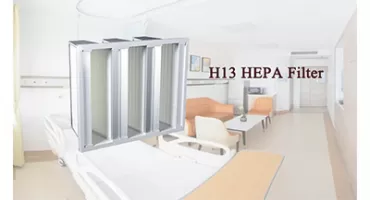 May. 16, 2024
Understanding Medical Grade H13 Filters: A Comprehensive Guide
May. 16, 2024
Understanding Medical Grade H13 Filters: A Comprehensive Guide

